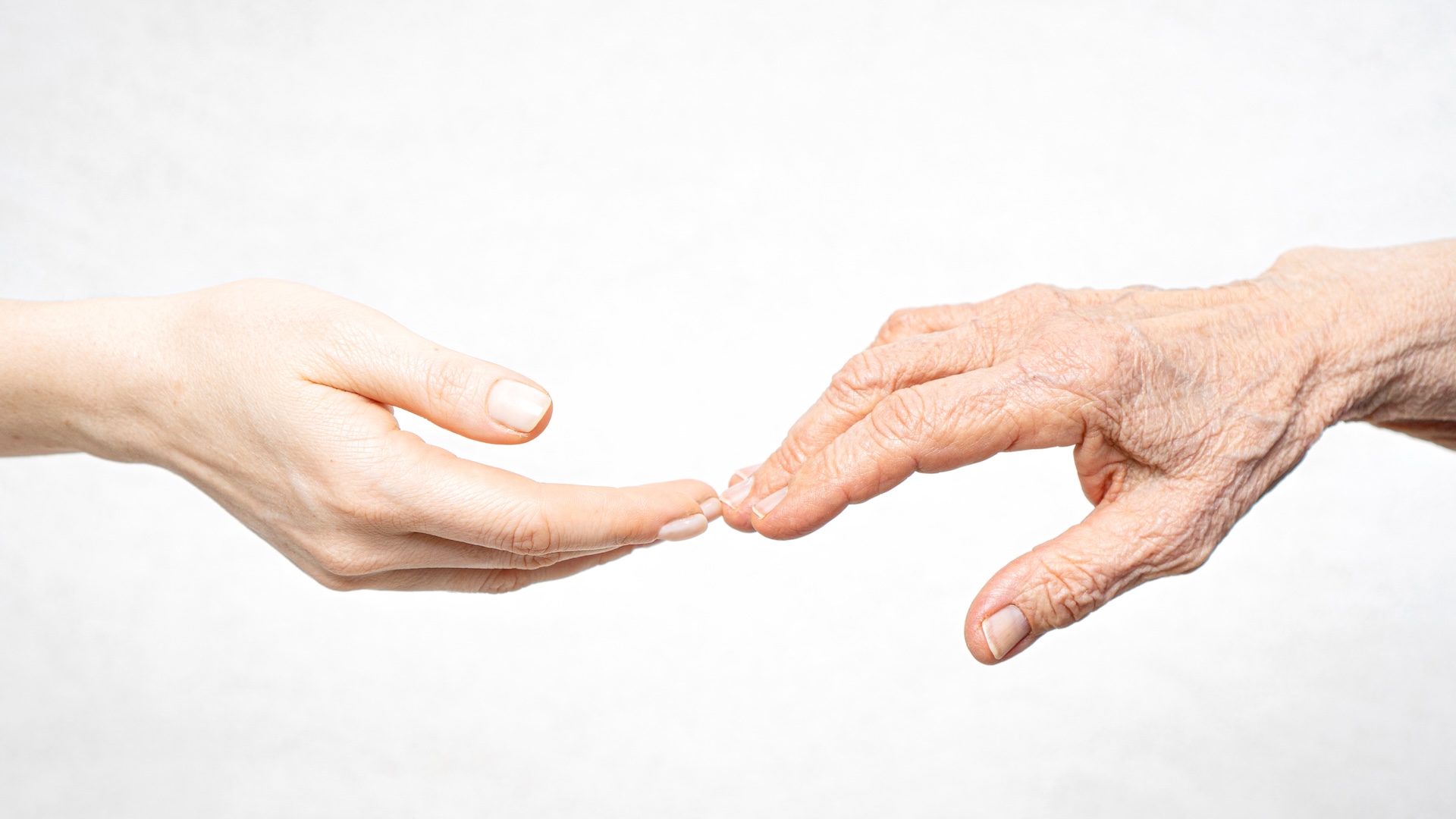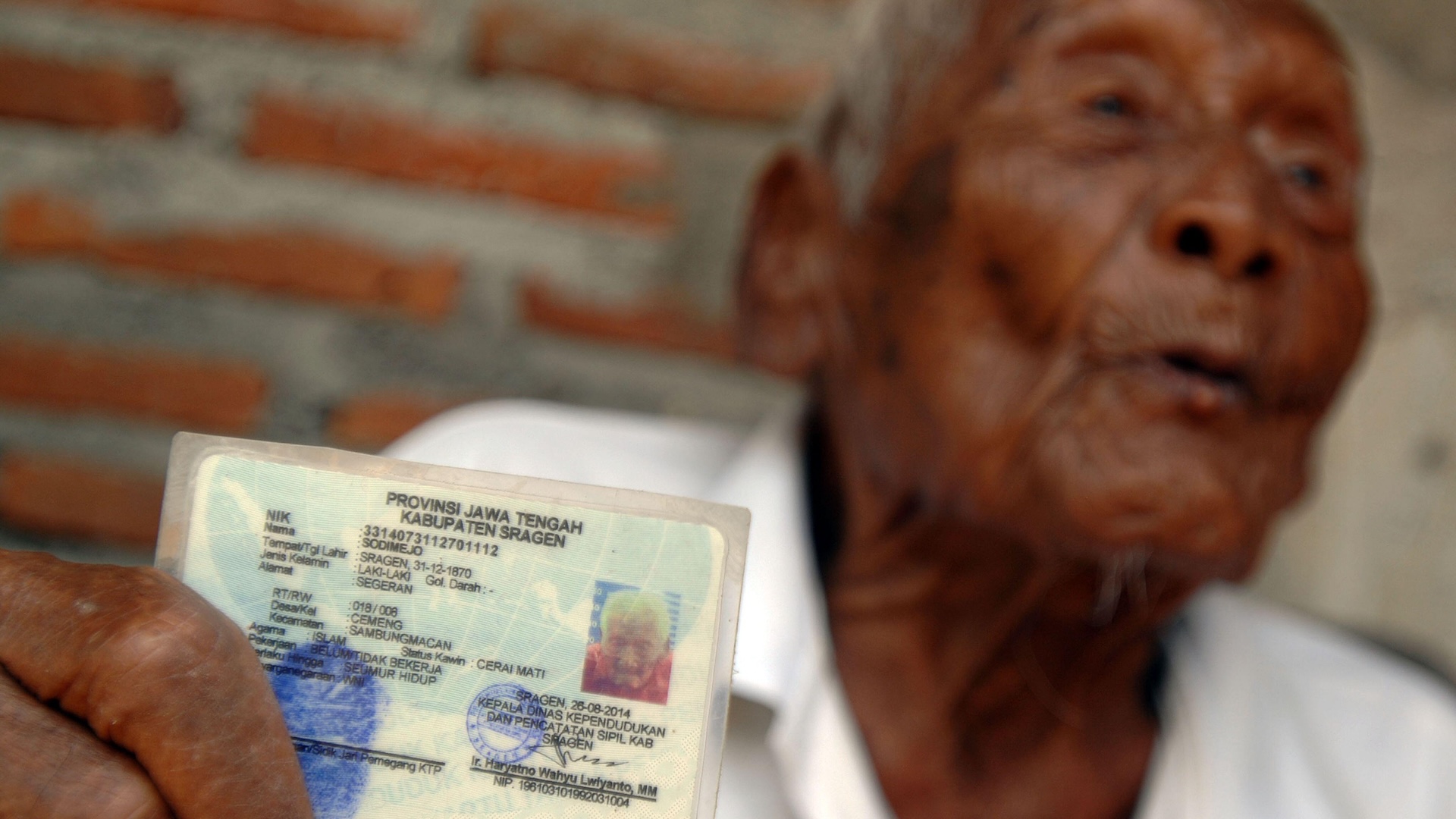Quick facts about aging
Cause of aging: Damage to cells in the body that makes them worse at their functions
Start of aging: Some say it starts before birth, when the first cells of an embryo start to develop
Speed of aging: Varies between different people and across each person’s lifetime
Aging is the process of getting older. In biology, aging refers to how, over time, the cells in our bodies wear out or get damaged. They no longer work as well as they used to.
Some visible signs of aging include wrinkled skin; gray or white hair; and dark patches, called age spots, on the hands and face. But aging affects every part of the body, including the internal parts we can’t see from the outside. Organ and tissue function, physical abilities and mental capacity all change as we age.
Some researchers say that aging starts even before birth, when an embryo’s first cells form in the womb. In children and young people, damaged or dying cells are usually replaced pretty quickly. However, as people get older, it takes longer for their bodies to fix or replace those dysfunctional cells. The speed of aging and how it changes the body and brain can vary widely from person to person.
5 fast facts about aging
Everything you need to know about aging
What causes aging?
All of the body’s cells eventually break down and die. With the passing of years and decades, cells divide more slowly, and they become less efficient. The membranes of cells stiffen, which affects the flow of nutrients and oxygen, as well as the removal of carbon dioxide, a waste product. Damaged body parts take longer to heal, and organs don’t work as well as they used to.
What we call “aging” is mostly caused by the damage to cells and molecules, like DNA, in the body over time.
Some signs of aging can change how we look. Cartilage, the flexible substance that shapes our ears and noses, softens and sags with age. This makes the noses and ears of older people seem bigger than those of younger people. Muscle and bone mass decline in older bodies, reducing both strength and height.
In the aging brain, myelin — a fatty substance that covers nerve fibers — wears away. As a result, communication between brain cells called neurons breaks down. This can make it harder for older people to retrieve memories or make new ones.
A very rare genetic disorder called progeria can cause people to age when they are still very young — often before the age of 2. They may go bald, have stiff joints or develop wrinkled skin. The disorder is caused by a gene change, called a mutation. Worldwide, about 400 children are diagnosed with progeria each year.
Why does skin get wrinkly with age?
As people get older, one of the most obvious changes is in their skin. Wrinkles grow and deepen, especially around the eyes, mouth and forehead. Skin becomes less stretchy. It starts to sag and form creases, particularly on the face, neck and arms.
Older skin is drier than younger skin. It’s not as oily, and it holds less moisture. The dermis, or middle layer of the skin, gets thinner. In the dermis, a network of fibers make young skin stretchy, but over time, this network of fibers relaxes. The skin’s surface isn’t as smooth as it used to be, and ridges and folds form.
In addition to aging, certain habits can make wrinkles form earlier or faster. For example, pollution, cigarettes and e-cigarettes (also called vapes) contain toxins that dehydrate skin and damage the blood vessels that deliver oxygen to skin cells. This can lead to wrinkles and other signs of aging in skin.
Sun exposure can also break down a protein called collagen in the skin and cause wrinkles, particularly in people with lighter skin that burns easily. The sun releases a harmful type of radiation called ultraviolet light, or UV, and when UV rays cause the skin to age faster than it should, it is known as “photoaging.”
Why do hearing and eyesight worsen with age?
It is normal for hearing and eyesight to change somewhat with age. Genetics, disease and environmental factors can speed up or worsen the decline. Dramatic or sudden losses of hearing or sight could be signs of a more serious problem, and should be checked with a doctor.
The most common type of age-related hearing loss is called presbycusis (prez-buh-KYOO-suhs). This occurs gradually in both ears and results from damage to the inner ear, which contains important cells for hearing.
In the cochlea — a fluid-filled structure in the inner ear — tiny hairs help to conduct sound. These hairs wear away over time. Eventually, they no longer regenerate, which, in turn, worsens hearing. Normal wear-and-tear to the eardrum or the small bones in the middle ear can worsen hearing by disrupting the flow of sound to the cochlea. Earwax also becomes stickier with age, which can block the ear canal and make it harder for a person to hear.
Vision also gets worse with age. The eyes produce fewer tears after age 40, due to changes in the glands that make tears. Plus, muscles don’t rotate the eye as fully as they used to, which reduces people’s peripheral vision (the part of vision that allows you to see on the sides, rather than directly in front of you).
Fat pads that cushion the eyes deflate, making the eyes sink into their sockets. Pupils, which expand or contract to control how much light enters the eye, react more slowly. The lens of the eye, which focuses light so people can see clearly, loses flexibility. This can cause presbyopia (prez-bee-OH-pee-uh), or difficulty focusing on objects that are close-up. As proteins in the lens of the eye break down, the lens becomes yellow and may get cloudy, a condition called cataracts.
Does aging speed up after a certain age?
Although aging happens throughout the human lifetime, its pace varies. At certain times, aging seems to speed up in dramatic bursts.
In 2019, scientists tracked the rate of aging by looking at how substances in people’s blood changed as they aged. The researchers collected blood samples from 4,200 people ages 18 to 95 years old, and then used the blood proteins to map changes in aging bodies. On average, aging sped up significantly at three times: around ages 34, 60 and 78.
Several years later, another team of scientists tracked the rate of aging by looking at other molecules in the human body. They also examined changes in the human microbiome — the community of bacteria, fungi and viruses that inhabit our bodies. These researchers found that aging “spiked” at two times: around 44 years and around 60 years. These changes are thought to affect overall health. At both of those milestones, molecules linked to heart-related disease showed significant changes. When people enter their 60s, the shift is even more dramatic. Around age 60, the immune system starts declining rapidly and becomes less effective at fighting infection and disease.
Other research has found that around age 60, people lose strength and muscle mass. The tubes that blood moves through stiffen, and the heart has to work harder to pump blood. Heart muscles change, and the heart doesn’t beat as fast as it used to during exercise. This raises the risk for high blood pressure, which can cause damage and health problems.
Is there any way to reverse or stop aging?
All cells age and die, and aging cannot be entirely prevented or undone. But some aspects of aging can be slowed down. For many people, certain lifestyle choices help to delay or prevent some types of age-related damage and disease.
Aerobic exercise, such as running and swimming, has been linked to healthier aging. Exercising several times per week may help to prevent heart attacks and strokes. Regular exercise can also help to prevent type 2 diabetes, a condition in which there is too much sugar in a person’s blood. Strength training builds muscle mass, reduces frailty, and improves stability and balance, all of which can prevent life-threatening falls. Eating enough healthy foods, like vegetables, whole grains and lean proteins, has been linked to better health and increased longevity.
Some people believe that they can “cure” themselves of old age with various tricks, like injecting themselves with blood from young people. However, there is no science to back up this idea. Separately, scientists are also studying molecules, drugs and vaccines that could help slow aging or reverse some effects of aging. But these ideas are still being tested.

